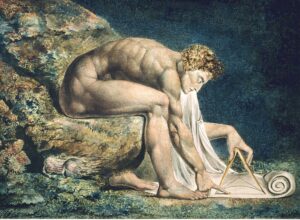University of Oxford-University of Warwick
PG SIS Colloquium
“Scientific and Technological Imaginaries in Italian Literature and Culture”
Taylorian Institution Library, Oxford
2 December 2023
Organisers: Gennaro Ambrosino, Frances Clemente, Jacopo Francesco Mascoli
We are thrilled to share the fantastic programme for the next SIS PG Colloquium (‘Scientific and Technological Imaginaries in Italian Literature and Culture’), which will be held at the Taylorian Institution Library (2 December, Oxford)
10:00 – 10:15 Registration and Opening Remarks
10:15 – 11:15 Panel 1: Technology, the Scientific Revolution and Modern Anxieties in Italian Film and Drama Studies
Chair: Jacopo Francesco Mascoli (University of Warwick)
Margherita Moro (University of Udine): Science through Television: Rossellini’s Project from La Recherche Scientifique by Kourganoff to the Concept Film by Tosi
Nicolò Dimasi (Autónoma University of Madrid): Physical and Mental Inadequacy to Modernisation in 20th Century Italy. A Comparative Study on Salgari’s Le Meraviglie del Duemila and Antonioni’s Deserto Rosso
Anna Saroldi (University of Oxford): Translation Technology and Theatrical Revolution: Rame and Fo’s Surtitles
11:15 – 12:15 Panel 2: Science and Literature in the Italian Long 19th Century
Chair: Gennaro Ambrosino (University of Warwick)
Enrica Leydi (University of Warwick): ‘Sotto il coltello anatomico’. Anatomical and Surgical Imagery in Leopardi’s Zibaldone
Marta Arnaldi (University of Oxford): ‘The new order of things’: Leopardi and AI
Michela Sereni (University of Galway): ‘L’imago tua più viva all’intelletto splende nel suol che ti fu natio’: The Role of Science in Giannina Milli’s Patriotic Poetics
12:15 – 13:00 Lunch
13:00 – 14:00 Keynote
Chair: Dario Galassini (University College Cork)
Fabio Camilletti (University of Warwick): Dante and the Ouija Board. How Spirit Mediums Invented GPT
14:00 – 14:15 Coffee break
14:15 – 15:30 Panel 3: Science and Literature in the 20th and 21st Italian Centuries
Chair: Frances Clemente (University of Oxford)
Domenico Fadda (University for Foreigners of Perugia): Dante’s Presence in Science Fiction: Remakes, Homages and Hidden References
Emanuele Stefanori (University of North Carolina): Forensic Science and Technological Devices as Narrative Devices in Leonardo Sciascia’s Una storia semplice
Laura Pergola (University of Turin): Exploring the Psychoanalytical Imaginary: Goliarda Sapienza and Her Destino Coatto
Francesca Ippoliti (University of Roma ‘Tor Vergata’, University of Lausanne): Scientific and Technological Imaginaries in Tullio Avoledo’s Novels
15:30 – 16:00 Coffee Break
16:00 – 17:00 Panel 4 Dystopia, Queerness and Machine Translation in Italian Comics
Chair: Silvia Vari (University of Warwick)
Ugo Russo (Université de Lorraine): La Città Distopica in Ranxerox di Stefano Tamburini e Tanino Liberatore
Alice Parrinello (University of Oxford): Questioning the Technologically Queer Utopia: Cyborgs, E-Suits, and Holograms in Saetta Rossa (2021)
Laura Bonella (University of Greenwich): Don’t Uou ‘Tear Along the Dotted Line’: The Evolving Correlation between Language Variation, Dubbing and Machine Translation
17:00 – 18:00 Panel 5: Scientific and Technological Imaginaries in Italian Visual Arts
Chair: Elisa Vivaldi (University of Edinburgh)
Anna Bernante (Ca’ Foscari University): Teaching and Learning Perspective in Renaissance Venice: A Case Study
Costanza Paolillo (New York University): How Michelangelo Can Sell Film Stocks. Fine Arts, Marketing Strategies, and Rising Consumer Culture in Postwar Italy
Martina Borghi (Royal Holloway University of London): Silvio Ceccato and the Era of the ‘New Humanism’: Cybernetics as an Innovative Approach in the Artistic Research for a New Aesthetics and a New Relationship with the Observer.
For more info, please contact the organisers: Frances Clemente (frances.clemente@pmb.ox.ac.uk), Gennaro Ambrosino (gennaro.ambrosino@warwick.ac.uk), and Jacopo Francesco Mascoli (jacopo-francesco.mascoli@warwick.ac.uk).

William Blake Newton (Wikimedia Commons)
